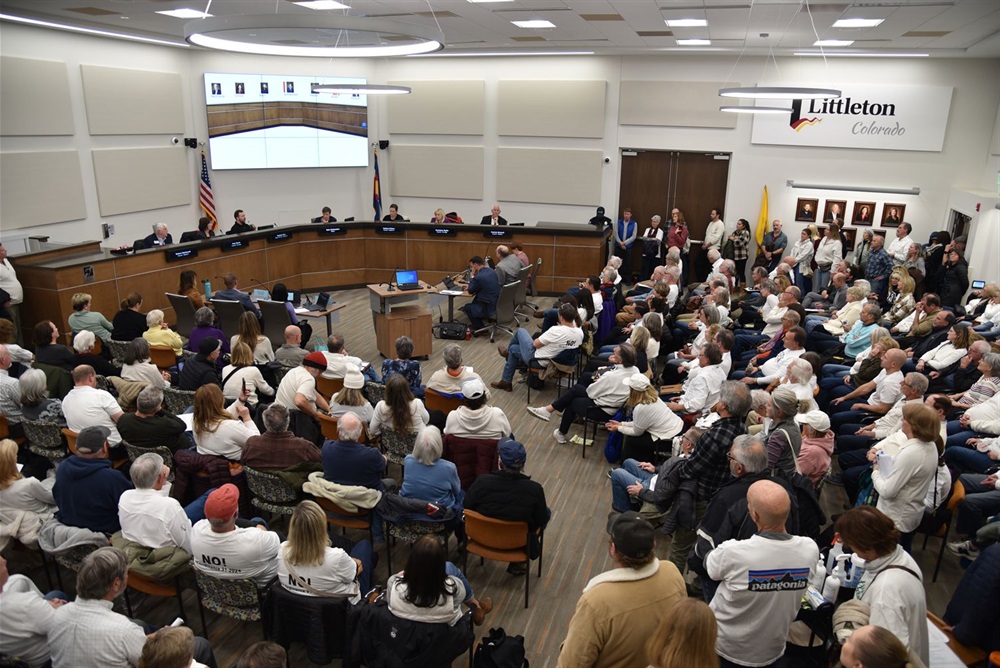Citizens Guide to City Council Meetings
Council and staff believe that the more involved citizens are in the early stages of policy and legislation development, the better local government can meet the needs and expectations of the community. Agendas for Littleton City Council meetings are posted on the Meeting Videos & Documents page.
Regular meetings of the city council are held the first and third Tuesday of each month at 6:30 p.m. in the council chamber at the Littleton Center, 2255 West Berry Avenue. These scheduled meetings are the forum for public comment. It is the expectation of council that members keep an open mind without prejudgment, work collaboratively to identify options, openly discuss and evaluate alternatives, and listen to the concerns of others prior to making a decision. It is understood that individual opinions and ideas, especially those that differ from one's own, are what allow the best discussion and decision for the community.
Ordinances

Ordinances are legislative acts or local laws. They are the most permanent and binding form of council action. Ordinances deal with public safety, health, and general welfare. All ordinances have a first and second reading.
On first reading, the ordinance is read by title and is located on the consent agenda. The mayor asks for a motion and a second to set the public hearing and puts the question to a vote. If the motion passes, it is scheduled for second reading and public hearing.
On second reading, staff gives a short presentation and then city council may ask questions of the staff. The mayor opens the public hearing and citizens who have signed in are called to speak. Each public hearing item has its own sign-up sheet at the front of the city council chamber. Each speaker may address council for up to three minutes. The number of speakers and time allowed to speak may be limited by the mayor in order to keep the meeting moving forward. Council members may direct questions to the speaker. When all speakers have addressed council, the mayor closes the public hearing. A motion and a second are required. If there is no second, the motion dies. If there is a second, the mayor then asks for discussion by the council, city manager and city attorney, and speaks with staff in response to questions raised by the council. If it is passed, it becomes a law. The law becomes effective ten days later.
Resolutions
Resolutions are adopted to express the policy of the council, or to direct certain types of administrative action. Resolutions can be used for internal administrative purposes such as contracts, intergovernmental agreements and memoranda of understanding with other entities. Resolutions are presented to city council through the consent agenda and require a motion for approval, a second, and a vote from city council.
Study Sessions
Study sessions are usually held the second and fourth Tuesday of each month. The city council may also hold study sessions that coincide with regular or special meetings. A study session is for staff and council to discuss and study items. No formal action or public comment are taken, although study sessions are televised and video minutes are recorded.
Other Public Meetings
City council may hold public meetings other than regular or special meetings or study sessions. These include council breakfasts, appointee interviews, and workshops. No formal action or public comment are taken, these meetings are not televised or video recorded, and no minutes are taken.
Request a Proclamation
To request a proclamation from the mayor and Littleton City Council, individuals can email the city clerk's office at colcityclerk@littletongov.org with information about the event or individual they would like to recognize. Proclamations are formal announcements made by the city to acknowledge significant milestones, cultural or historical events, or recognize individuals or groups for their contributions. The city clerk's office will guide the requestor through the process and provide any necessary forms or instructions to complete the request. All proclamation requests go through a review process and if approved, the proclamation will be signed by the mayor and the city clerk and will be presented at a future city council meeting.